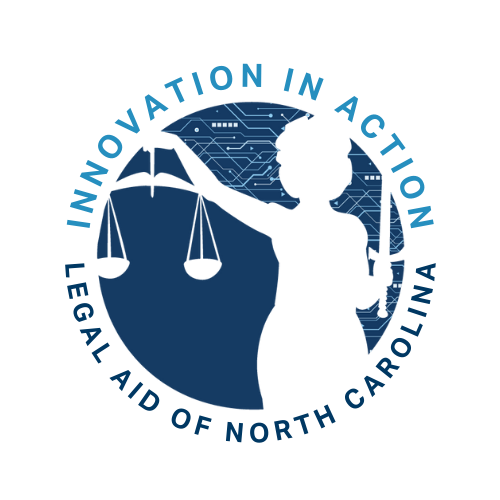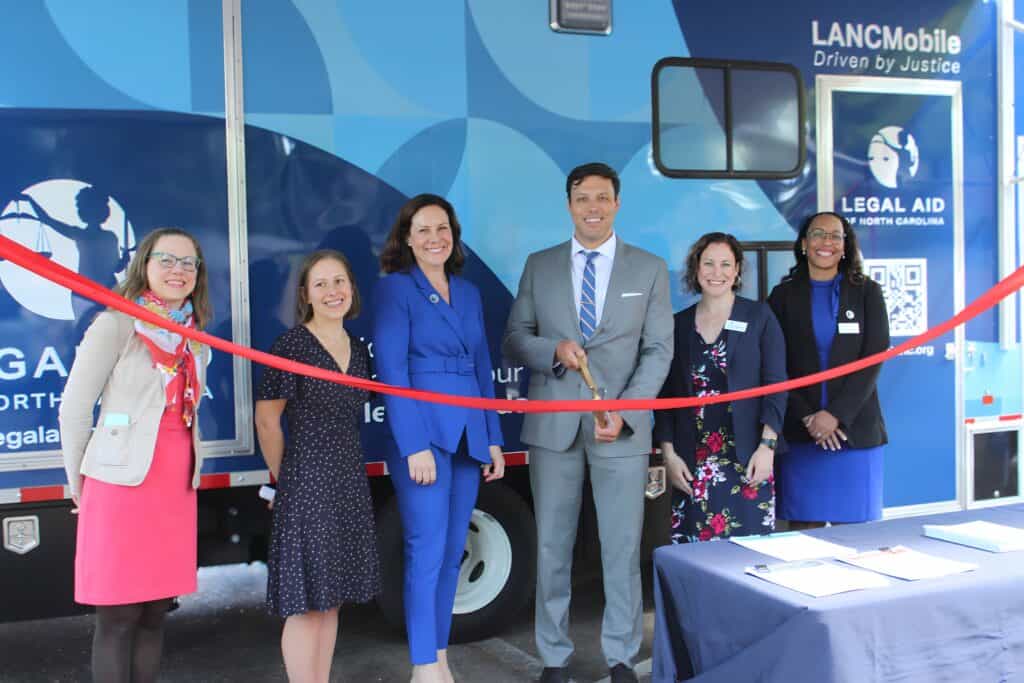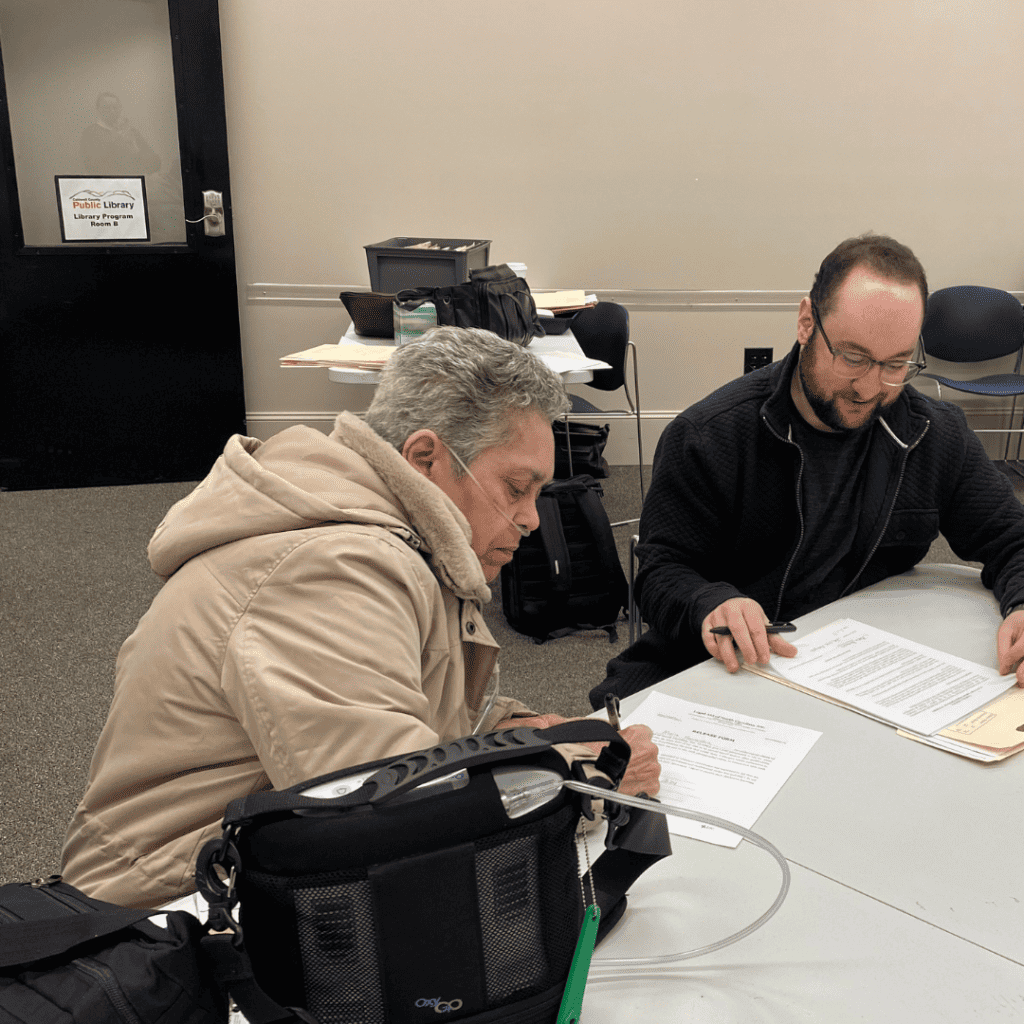13 Former H-2A Workers Settle Human Trafficking and Wage Claims Against NC Employers with Assistance from Legal Aid of North Carolina
RALEIGH, N.C. – Thirteen former H-2A temporary agricultural workers have settled their federal human trafficking and wage claims with the assistance of Legal Aid of North Carolina’s (LANC) Farmworker Unit. The case, filed in the Eastern District of North Carolina (Martinez-Morales, et al. v. Lopez, Jr, et al., Case No. 5:22-cv-00187-BO), was brought against North Carolina employers Valentino Lopez, Jr. and Gilberto “Beto” Lopez, along with two farms they furnished workers to in 2020. In their complaint, the plaintiffs alleged violations of the Fair Labor Standards Act, the Trafficking Victims Protection Reauthorization Act, the North Carolina Wage & Hour Act, North Carolina anti-human trafficking laws, and the common law of contract.
The farmworker plaintiffs alleged that, in 2020, the Lopez brothers made fraudulent promises regarding wages and working conditions. These promises persuaded the plaintiffs to pay exorbitant fees and incur additional debt for visas and inbound travel-related expenses to travel from their hometowns in Mexico to North Carolina to work for the defendants.
Upon arrival in North Carolina, the plaintiffs alleged that Valentino Lopez, Jr. exploited their financial vulnerability by seizing their passports and withholding their Social Security cards. They claimed he used threats of deportation to coerce them into working involuntarily for wages significantly below the mandated H-2A visa wage rate, some weeks below the federal minimum wage, and occasionally without any compensation at all. Additionally, one plaintiff alleged sex trafficking by Valentino Lopez, Jr.
With support from LANC, the plaintiffs reached settlement agreements with the Lopez brothers and two North Carolina berry farms, Hannah Forrest Blueberries, LLC, and Ronnie Carter Farms, Inc., for a total of $150,000. The settlements include minimum wage-related damages for six additional opt-in plaintiffs in addition to the 13 named plaintiffs. The settlements also included commitments from the farms to:
- Develop and disseminate a sexual harassment/sexual assault policy;
- Install workers’ rights posters and posters from the North Carolina Human Trafficking Commission at all labor camp sites;
- Increase supervision of contractors’ reimbursement payments for H-2A workers’ fees and travel expenses; and
- Prohibit the confiscation of workers’ passports.
Furthermore, the Lopez brothers agreed never to participate in the H-2A program again. Prior to the date of these settlements, U.S. Department of Labor’s Wage and Hour Division announced that they assessed $62,531 in civil penalties against Valentino Lopez, Jr. and recovered $58,039 in owed wages for 72 workers following widespread violations of the federal H-2A program, as revealed by the plaintiffs’ interviews with the Department.
Aaron Jacobson, Supervising Attorney for LANC’s Farmworker Unit, commented, “Our office has seen a marked increase in cases involving human trafficking in agriculture, particularly in eastern North Carolina, in recent years. It is our hope that, as a result of the determination and commitment of these clients, others in similar schemes will find courage and inspiration.”
Jose Cruz Martinez-Morales, the lead plaintiff, shared his experience, saying, “Nothing that was promised was ever fulfilled. I was totally deceived. They had made promises, and they failed to deliver on them. In my personal experience, I was afraid…they had threatened us with deportation. So, all of us, we did have fears, but we went forward with our case anyway, and now we have come this far…So don’t be afraid. The farmworkers’ rights have to be respected under the law.”
Marisol Florencio-Gutierrez, another plaintiff, added, “With this case, my coworkers and I put ourselves in danger…and, with the news of these settlements, other workers can also see that they can defend themselves and that they do not just have to do what their employer tells them to. They have rights and they can defend themselves.”
LANC remains committed to fighting for the rights of farmworkers and ensuring that justice is served.
###
RALEIGH, N.C. – Trece ex-empleados trabajadores agrícolas temporales H-2A han resuelto sus reclamos federales de trata de personas y reclamaciones de salario con la asistencia de Ayuda Legal de Carolina del Norte (LANC) División para Trabajadores Agrícolas. El caso, presentado en el Tribunal del Distrito Oriental de Carolina del Norte (Martinez-Morales, et al. v. Lopez, Jr, et al., Caso No. 5:22-cv-00187-BO), fue brindado contra los empleadores de Carolina del Norte Valentino Lopez, Jr. y Gilberto “Beto” Lopez, junto con otras dos granjas a las que proporcionaron trabajadores en el 2020. En su demanda, los demandantes alegaron violaciones de la Ley Federal de Normas Laborales Justas, Ley de Reautorización de la Protección de Víctimas de la Trata de Personas, Ley de Salarios y Horas de Carolina del Norte, leyes contra la trata de personas de Carolina del Norte, y el derecho común de contrato.
Los trabajadores agrícolas demandantes alegaron que, en 2020, los hermanos Lopez hicieron promesas fraudulentas sobre salarios y condiciones de trabajo. Estas promesas convencieron a los demandantes a pagar comisiones exorbitantes e incurrir en deudas adicionales para cubrir las visas y los costos relacionados con el viaje desde sus ciudades en México hasta Carolina del Norte para trabajar para los demandados.
Al llegar a Carolina del Norte, los demandantes alegaron que Valentino Lopez, Jr. explotaron su vulnerabilidad económica confiscando sus pasaportes y reteniendo sus tarjetas de Seguro Social. Afirman que él usó amenazas de deportación para forzarlos a trabajar involuntariamente por salarios significadamente por debajo del salario estipulado para visa H-2A, algunas semanas por debajo del salario mínimo federal, y en ocasiones sin ninguna compensación. Adicionalmente, un demandante alega ser objeto de trata sexual por Valentino Lopez, Jr.
Con apoyo de LANC, los demandantes llegaron a un acuerdo de resolución con los hermanos López y dos granjas de bayas de Carolina del Norte, Hannah Forrest Blueberries, LLC. y Ronnie Carter Farms, Inc., para un total de $150,000. Los acuerdos incluyen indemnizaciones por daños y perjuicios relacionados con el salario mínimo para otros seis demandantes que optaron agregarse al acuerdo en adición a los 13 demandantes nombrados. Los acuerdos también incluyen compromisos por parte de las granjas de:
- Desarrollar y difundir una política de protección contra el acoso sexual/agresión sexual;
- Instalar carteles sobre los derechos de los trabajadores y carteles de la Comisión de Trata de Personas de Carolina del Norte en todos los campos laborales;
- Aumentar la supervisión de los pagos de reembolso de los contratistas a los trabajadores H-2A para gastos y costos de viaje, y
- Prohibir la confiscación de los pasaportes de los trabajadores.
Además, los hermanos López acordaron no volver a participar en el programa H-2A otra vez. Antes de la fecha de estos acuerdos, el Departamento del Trabajo de los Estados Unidos, División de Salarios y Horas anunció que evaluaron $62,531 en sanciones civiles contra Valentino Lopez, Jr. y recuperaron $58,039 en salarios adeudados a 72 trabajadores debido a múltiples violaciones del programa federal H-2A, como fue revelado por las entrevistas de los demandantes con el Departamento.
Aaron Jacobson, abogado supervisor de la División para Trabajadores Agrícolas de LANC, comentó, “Nuestra oficina ha visto un marcado aumento en los últimos años en los casos relacionados con la trata de personas en la agricultura, en particular en el este de Carolina del Norte. Es nuestra esperanza que, como resultado de la determinación y el compromiso de estos clientes, otros en esquemas similares encuentren valentía e inspiración.”
Jose Cruz Martínez Morales, el demandante principal, compartió su experiencia diciendo “Nada de lo prometido se cumplió. Fui completamente engañando. Ellos me hicieron promesas y fallaron en cumplirlas. En mi experiencia personal yo tenía miedo … ellos nos habían amenazado con deportación. Así que todos nosotros teníamos miedos, pero seguimos adelante con nuestro caso de todos modos y ahora hemos llegado hasta aquí … así que no tengan miedo. Los derechos de los trabajadores agrícolas tienen que ser respetados bajo la ley.
Marisol Florencio Gutiérrez, otra demandante, agregó “con este caso mis compañeros de trabajo y yo nos pusimos en peligro … y, con el anuncio de estos acuerdos, otros trabajadores también pueden ver que se pueden defender y que no tienen que hacer lo que su empleador les dice. Ellos tienen derechos y se pueden defender.”
LANC mantiene su compromiso de pelear por los derechos de trabajadores agrícolas y garantizar que se haga justicia.






